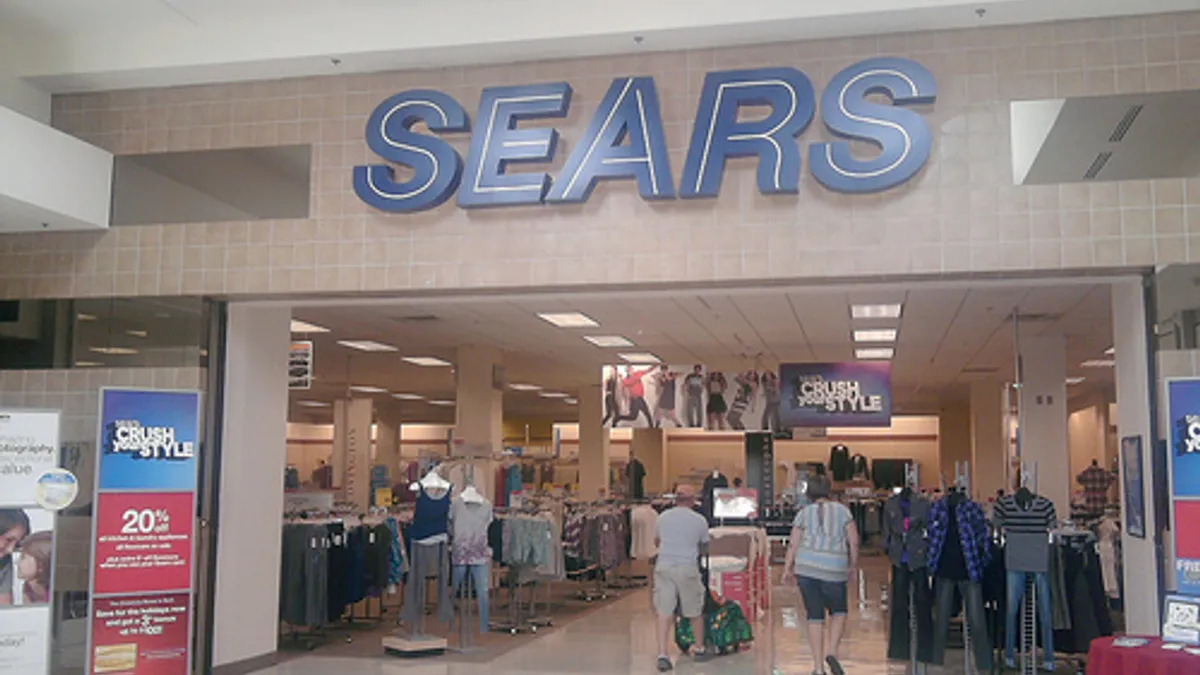Dive Brief:
- Sears Holdings CEO Eddie Lampert pledged to protect the company from vendors "trying to take advantage negative rumors about Sears to make themselves a better deal" in a recent company blog post.
- Reuters reports the CEO took aim at One World, a Techtronic Industries subsidiary that manufactures Sears' Craftsman products, for threatening to file a lawsuit against the company in order to exit its contract, after Sears refused to comply with onerous terms.
- Lampert claims the supplier is attempting to leave the contract in order to free manufacturing capacity for commitments to Sears competitors. The companies have a nine-year relationship with over $868 million in payments exchanged, and Sears has continued to make payments on time, per the blog post.
Dive Insight:
Faced with rumors of a client's potential bankruptcy, suppliers often have a knee-jerk response over what to do, and whether payments will continue to arrive.
Given these concerns, suppliers may take aggressive actions to secure their business: Sometimes, suppliers may attempt to publicly shame a faulty client, or take punitive action by withholding further stock despite a client's strong record past payments.
However, the reality is that suppliers' fate is often connected with that of their buyers, and decisive action may aggravate a buyer's problems. As Lampert details in his blog post, a longtime chain's chances of weathering fiscal storms are lowered when it cannot provide merchandise needed to stock its shelves. "We won’t allow that to happen," he writes.
But the choice for what to do is more difficult for suppliers. After all, if the company does end up failing, they rank at the bottom of the totem pole for post-bankruptcy debt obligations. If that does happen, a supplier may find itself short millions of dollars, affecting its cash flow. That a supplier seeks a more competitive agreement is unsurprising.
Yet, supply chains remain a relationship business, and nine-years of successful trade may influence decisions. Rather than toughening terms toward a company with which many suppliers have enjoyed great success and a strong longtime partnership, could support be possible? Lampert claims Sears is doing its part and working with vendors that stick by the company to minimize risk.
When asked why not declare bankruptcy by the Chicago Tribune, Lampert responded by mentioning the human cost. He also asked for support from partners. Will suppliers provide it, even if it affects the bottom line? There was a time when supplying Sears meant the making of a company. Yet, a wave of bankruptcies across the retail space make speculation the retail giant may go under seem feasible.
At the end of the day, it may come down not just to Sears' actions, but that of their suppliers.














